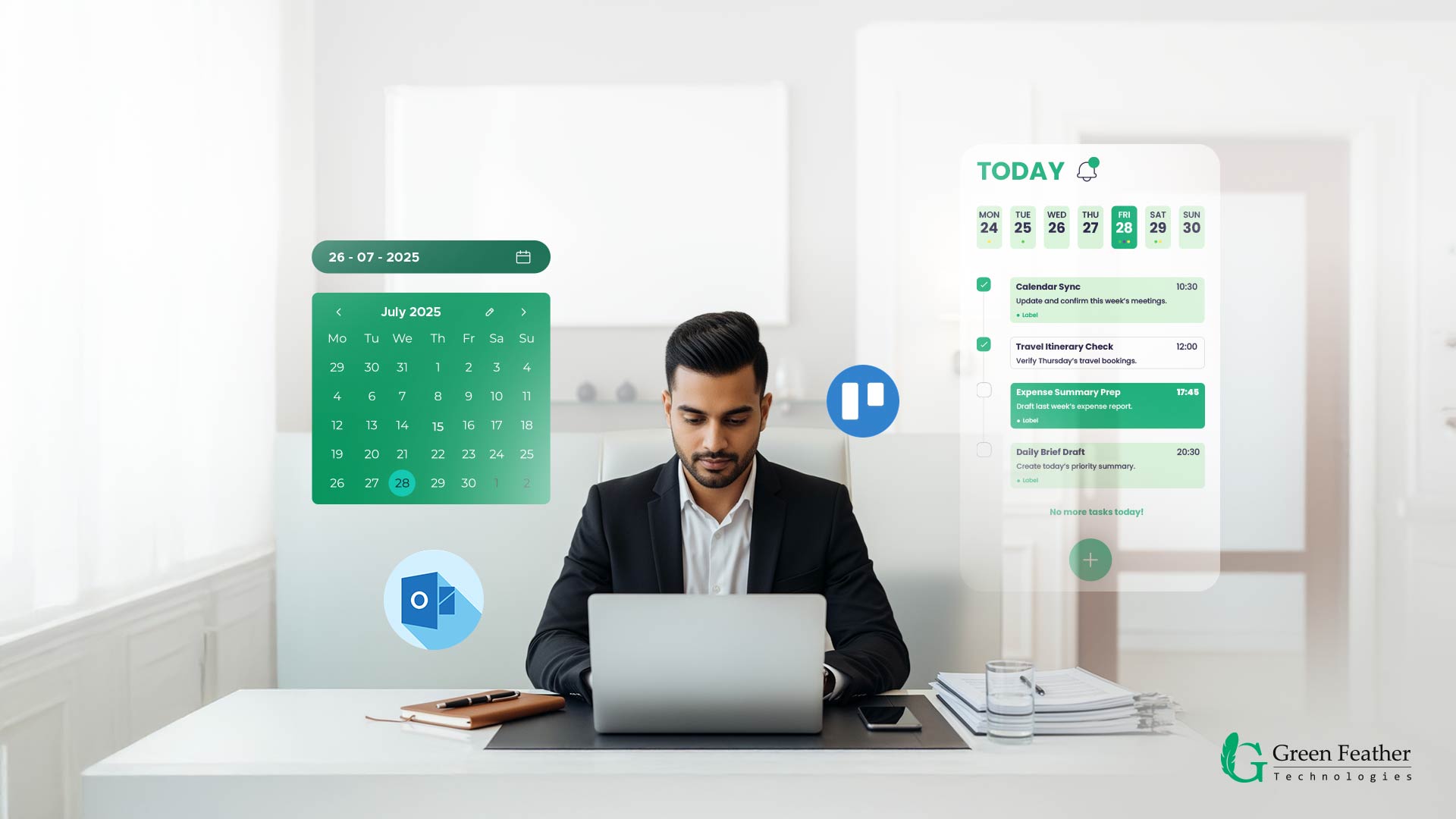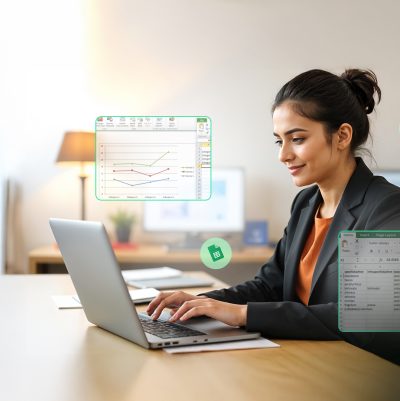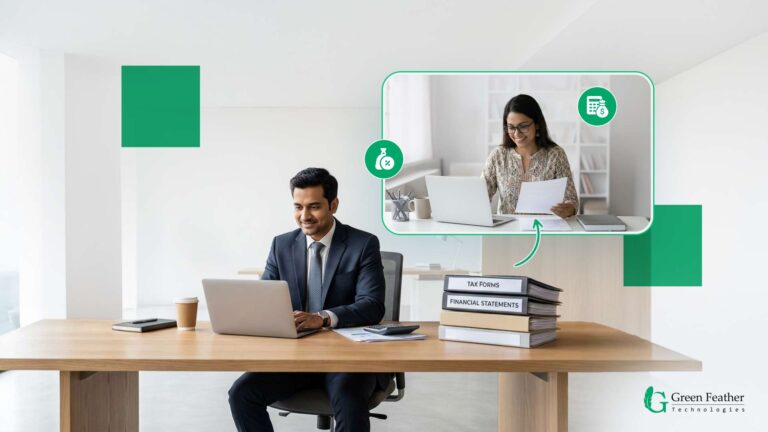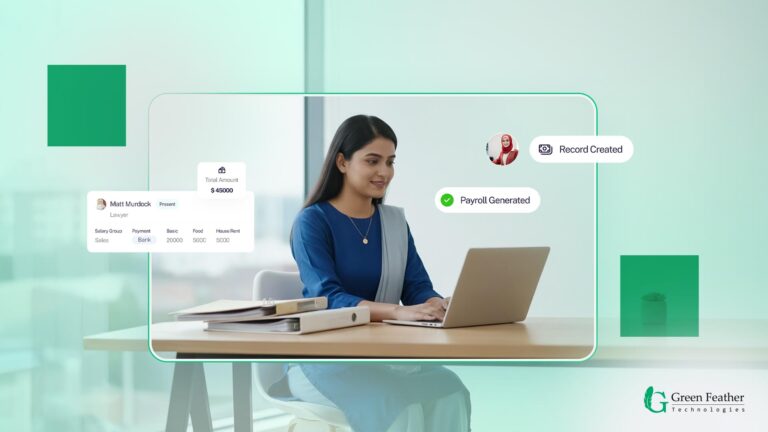Summary
To become a personal assistant: develop communication and technical skills, gain relevant experience through entry-level roles, build a strong resume, and continuously improve through learning and networking.
The role of a personal assistant has evolved dramatically in today’s hybrid and digital workplace landscape. Executives struggle to juggle their complex schedules, and personal assistants are making it easy.
As per Zippia data, personal assistant jobs are projected to grow 8% from 2018 to 2028. So, knowing how to become a personal assistant can do wonders for your career. Let’s learn step-by-step how to become one! There is a bonus section for you also.
Step 1 – Understand the Role of a Personal Assistant
Before learning how to become a personal assistant, it’s crucial to understand what you have to do. Also, it’s crucial to get an understanding of which industries can be your playground.
What Personal Assistants Do Daily
Personal assistants serve as the organizational backbone for busy professionals, handling three core areas of responsibility. These are –
- Administrative duties: Encompass everything from expense reporting and document preparation to project coordination and vendor management.
- Email and correspondence management : This includes filtering communications, drafting responses, and maintaining professional relationships on behalf of the employer.
- Calendar and travel management: Involves scheduling meetings, coordinating complex itineraries, and ensuring seamless transitions between appointments.
Core Industries that Hire PAs
Personal assistants find opportunities across diverse industries. It can include corporate environments, the entertainment industry, fast-growing startups, and C-level executive offices. The field offers several specialization paths:
- Administrative Personal Assistant: Focus on traditional office support.
- Executive Personal Assistant: Work directly with senior leadership.
- Celebrity Personal Assistant: Manage high-profile clients’ personal and professional lives.
- Virtual Personal Assistant: Provide remote support using digital tools and platforms.
Step 2 – Build the Right Skills
Success as a personal assistant requires a balanced combination of interpersonal abilities and technical expertise. It enables you to handle diverse challenges efficiently.

Develop Soft Skills to Become a Personal Assistant
The soft skills to master as a personal assistant include –
- Communication: Communication is like the foundation of practical PA work. It requires exceptional verbal presentation skills for handling phone calls and meetings. Along with that, strong written skills are also important for writing effective emails and reports.
- Discretion and Confidentiality: A personal assistant has to be able to handle sensitive business information. But it’s not just about that. They also have to maintain discretion and confidentiality regarding personal details and strategies.
- Problem-solving and Multitasking: These capabilities allow PAs to juggle multiple priorities simultaneously. It’s key to complete basic tasks while finding creative solutions to unexpected challenges during busy workdays.
Master Technical Skills to Become a Personal Assistant
Modern personal assistants must master –
- Office suites: Proficiency in office suites, including MS Office and Google Workspace, is key. It enables efficient document creation, data analysis, and presentation development.
- Calendar tools: Mastering tools like Google Calendar and Microsoft Outlook is crucial. These are necessary to coordinate complex scheduling across multiple stakeholders and time zones.
- Project management tools: Working with tools like Trello, Notion, and Asana makes a personal assistant more efficient. It helps them organize tasks, track deadlines, and monitor ongoing initiatives.
Step 3 – Gain Foundational Experience
Building relevant experience doesn’t require immediately starting as a personal assistant. Because many transferable skills can be developed through related positions.
Gaining Experiences through Entry Points
Customer service, receptionist, and administrative roles provide an excellent foundation experience. They help to develop –
- Communication skills
- Teach you to handle multiple inquiries professionally
- Familiarize you with office environments and business operations
These positions demonstrate your ability to support others while maintaining composure under pressure.
Volunteer or Internship Opportunities
Consider assisting a local business, mentor, or nonprofit organization to gain hands-on experience with scheduling, correspondence, and project coordination. These opportunities allow you to –
- Build references
- Develop your skills in real-world scenarios
- Create portfolio examples to demonstrate capabilities
Let us match you with a trained virtual personal assistant – ready to support your busy schedule from day one.

Step 4 – Pursue Education or Training (If Needed)
While formal education isn’t always required, strategic learning can significantly enhance your competitiveness and earning potential in the personal assistant field.
Recommended Courses to Become a Personal Assistant
Business administration, communication, and scheduling software courses provide valuable knowledge that directly applies to PA responsibilities. Focus on programs that cover –
- Professional writing
- Time management
- Business etiquette
- Technology tools are commonly used in modern offices
Optional Certifications
There are certain optional certifications that can help in the PA career journey. These certification programs have specialized training in strategic thinking, advanced communication, and confidentiality protocols, distinguishing top-tier assistants. For example –
- Certified Administrative Professional (CAP)
- Executive Assistant Diploma/Certificate
- Personal Assistant Diploma/Certificate
- Virtual Assistant Certificate
- Business Administration Diplomas/Certificates
- PA/Secretarial Diplomas
- Level 5 Executive Assistant Diploma
- Level 4 Executive PA Certificate/Diploma
- Level 3 Personal Assistant Certificate/Diploma
Step 5 - Build a Standout Resume and Online Presence
Your application materials are potential employers’ first impressions, so you must present your qualifications strategically.
Resume Best Practices for PAs
Tailor your experience to highlight PA-relevant duties in the resume. Here are some best practices to follow –
- Emphasize organizational skills, communication abilities, and problem-solving achievements.
- Highlight technical tools and soft skills by listing specific software proficiencies.
- Include examples of discretion, multitasking, and relationship management
LinkedIn and Online Portfolios
Besides a well-structured resume, additional career achievements and qualifications in LinkedIn and other online portfolios can significantly help. You can:
- Showcase certifications, testimonials, and endorsements from previous supervisors
- Create a compelling LinkedIn profile highlighting your PA-relevant skills
- Include recommendations mentioning your reliability, attention to detail, and ability to handle confidential information.
Step 6 – Start Job Hunting with Intention
Strategic job searching involves targeting the right opportunities and presenting yourself as the ideal candidate for personal assistant positions.
Job Boards and Recruiters
LinkedIn, Indeed, and specialized EA/PA recruiters offer the best opportunities for finding quality personal assistant positions. Focus on recruiters specializing in administrative and executive support roles. They often have exclusive access to high-level positions and can provide valuable career guidance.
Crafting a Targeted Cover Letter
Here is the most important part – using a targeted cover letter over a generic one goes a long way when applying for a job. Research the company and personalize each application to show your proactive attitude and attention to detail. Demonstrate how your skills align with their needs and include examples of your abilities. Include how you’ve anticipated problems, managed complex situations, or improved processes in previous Personal Assistant roles.
Step 7 – Nail the Interview & Trial Period
The interview process for personal assistant positions often involves practical assessments and scenario-based questions that test your real-world capabilities.
Common PA Interview Questions
When interviewing for a personal assistant position, it is essential to expect scenario-based questions about multitasking and confidentiality. These help assess how you’d handle competing priorities, manage sensitive information, and respond to unexpected challenges.
For thorough preparation, check out ‘Top 30 Executive Assistant Questions‘ to understand the situational questions commonly asked. You will also find some sample responses.
First 30 Days on the Job
Focus on building trust, establishing a communication rhythm, and mastering tools during your initial period. Learn your employer’s preferences, communication style, and priorities while demonstrating reliability through consistent follow-through on commitments and proactive communication about potential issues.
Tips on How to be the Best Personal Assistant
Excellence in personal assistant work goes beyond basic task completion. It requires strategic thinking and exceptional service delivery. Here are some tips on how to be the best personal assistant:
1. Anticipate Needs Before They're Expressed
Stay one step ahead of your employer’s schedule and expectations. You can study patterns in their calendar, understand seasonal business cycles, and prepare for recurring needs. This proactive approach positions you as an indispensable partner rather than just a task executor.
2. Master the Art of Discretion and Trust
Maintain professional boundaries, protect sensitive information, and demonstrate consistent judgment in all interactions. It’s necessary to practice confidentiality and build strong, reliable relationships. Because trust is the foundation of successful PA relationships and must be earned through consistent professional behavior.
3. Continuously Improve Your Tools and Skills
Invest in upskilling and adopt new technology to stay efficient. Regularly learn new software and attend professional development workshops. Also, always stay current with industry best practices. The most successful personal assistants embrace learning agility and continuously seek ways to add value.
4. Understand Your Manager's Work Style
Adapt your communication style and workflow to match their preferences by observing how they process information, make decisions, and prefer to receive updates. Some executives prefer detailed written reports, while others want brief verbal summaries. Successful PAs adjust their approach accordingly.
Career Growth & Specialization Paths for Personal Assistants
The personal assistant career offers multiple advancement opportunities for ambitious professionals seeking long-term growth. Here are some specialization paths for personal assistants:
a. Advancing to Executive Assistant or Chief of Staff
Joining as a personal assistant doesn’t mean you will stay in that position forever. You can advance to more reputable and qualified positions with skills and experience. These are –
- Executive Assistant roles : The executive assistant role is more of a higher-level role. Its primary responsibility is higher-level strategic support. That often includes project management, stakeholder communication, and decision-making authority on behalf of senior executives.
- Chief of Staff positions: It represents the pinnacle of administrative careers, and it’s the highest you can get from being a PA. It involves strategic planning, team leadership, and serving as a key advisor to organizational leaders.
b. Becoming a Remote/Virtual Personal Assistant
You don’t always have to climb the career ladder. Sometimes, you can choose other paths. One of those paths is becoming a virtual personal assistant. This specialization offers flexibility and global opportunities. It allows you to support clients worldwide while working from home.
Bonus: How to Become a Personal Assistant with No Experience
Here’s the thing: you can enter this field without direct personal assistant experience by leveraging transferable skills and alternative pathways. You can do it by –
- Highlighting Transferable Skills
Highlighting transferable skills from different roles can be very helpful. It can be any role that demonstrates your skills. Also, master organizational abilities, communication skills, and service orientation. - Virtual Internship and a Freelance Platform
Using virtual internships or online freelancing platforms to gain initial experience. Platforms like Upwork or Fiverr are great for that purpose. Then, build references and create a portfolio of successful projects. These will showcase your PA capabilities to potential employers. - English Communication Skill Tests
Having a decent score in English communication skills compatibility tests can also work very well. Tests like the TOEFL, GMAT, or SAT can validate your language proficiency for high-level positions. - Experience in Extracurricular Activities
Extracurricular activities relevant to the role can help to get a personal assistant job. Experiences like –- Organizing student events
- Serving as a class representative
- Volunteering for community organizations
- These showcase leadership and organizational skills.
- Certificates of Achievement in Digital Tools
Certificates in tools like MS Excel, Office Suite, Google Workspace, or calendar management tools can boost your credibility. These certifications demonstrate your readiness to handle essential digital tasks. Such as, document creation, scheduling, and data entry – which are critical for most personal assistant roles today. - Recommendation from the University
Recommendation letters boost your application. Professors, department heads, or student services coordinators can write them. They speak to your character, work ethic, and reliability. These letters are good if you’re new to your career. They can replace professional references when you lack work experience.
Read More: Virtual Assistant vs Personal Assistant
Conclusion
Ultimately, becoming a personal assistant is all about developing the correct skills and relevant experience. Your success in the role comes from understanding the role’s demands and mastering the essential tools. However, demonstrating your reliability and professionalism will take you to the next level. Combining all these things is how to become a personal assistant.



